So you’ve finished that film and you’re considering entering it in a film festival. But with so many film festivals out there, how do you choose the best film festivals?
We’ve put together a list of the best film festivals in the world. This is a list of the top 15 film festivals, whether for prestige, potential exposure, or overall coolness, if you can get into these you’re well on your way.
Now, some of these are the elite of the elite in the film festival world. This isn’t for everyone. I plan to put together a list in the future of the most accessible film festivals that you can get into to start your career off.
For now, this is a list of some of the best film festivals in the world. Some, like the Cannes and Venices’ of the world, you’ll find it very hard to get into without an established film festival track record, even if you’re attempting to enter your film in the lesser-known categories.
BEST FILM FESTIVALS
What Are Film Festivals?
Film festivals happen all over the world, often to showcase films from different countries and cultures.
In North America, there are a number of famous film festivals including Cannes in France, Sundance Film Festival in Utah, Berlinale in Germany, and Toronto International Film Festival (TIFF) in Canada.
These events typically take place during the winter or fall months so they can be attended by people who live near them or have time to travel far distances.
A film festival is a series of screenings that take place over the course of a few days, usually in theaters.
The films screened at these festivals are typically independent and non-mainstream films that would not otherwise be shown to large audiences.
My best advice for getting into any film festival is to:
- Do a lot of research about the festival you’re looking at. Check the small print!
- Use a festival submission service like FilmFreeway.
- Complete all the forms effectively and don’t miss anything out. There’s nothing that film festivals dislike more than people who don’t follow the instructions!
Best Film Festivals
So, without further ado, here’s our list of the 15 Best Film Festivals In The World.
Cannes Film Festival
The Cannes Festival, named until 2002 as the International Film Festival (Festival international du film) and known in English as the Cannes Film Festival, is an annual film festival held in Cannes, France.
The festival previews new films of all genres, including documentaries, from around the world. Founded in 1946, the invitation-only festival is held annually (usually in May) at the Palais des Festivals et des Congrès.
The festival has become an important showcase for European films. Jill Forbes and Sarah Street argue in European Cinema: An Introduction that Cannes “became…extremely important for critical and commercial interests and for European attempts to sell films on the basis of their artistic quality.”
Forbes and Street also point out that, along with other festivals such as the Venice Film Festival and Berlin International Film Festival, Cannes offers an opportunity to determine a particular country’s image of its cinema and generally foster the
Additionally, given massive media exposure, the non-public festival is attended by many movie stars and is a popular venue for film producers to launch their new films and attempt to sell their works to the distributors who come from all over the globe.
When Does It Usually Take Place: May.
Founded: 1946.
Sundance Film Festival
The Sundance Film Festival, a program of the Sundance Institute, is an American film festival that takes place annually in Utah. With 46,732 attendees in 2012, it is the largest independent film festival in the United States.
Held in January in Park City, Salt Lake City, and Ogden, as well as at the Sundance Resort, the festival is a showcase for new work from American and international independent filmmakers.
The festival comprises competitive sections for American and international dramatic and documentary films, both feature-length films and short films, and a group of out-of-competition sections, including NEXT, New Frontier, Spotlight, and Park City At Midnight. The 2016 Sundance Film Festival took place from January 21 to January 31, 2016.
The festival has changed over the decades from a low-profile venue for small-budget, independent creators from outside the Hollywood system to a media extravaganza for Hollywood celebrity actors, paparazzi, and luxury lounges set up by companies not affiliated with Sundance.
Festival organizers have tried curbing these activities in recent years, beginning in 2007 with their ongoing Focus On Film campaign.
The 2009 film Official Rejection documented the experience of small filmmakers trying to get into various festivals in the late 2000s, including Sundance. The film contained several arguments that Sundance had become dominated by large studios and sponsoring corporations.
A contrast was made between the 1990s, in which non-famous filmmakers with tiny budget films could get distribution deals from studios like Miramax Films or New Line Cinema, (like Kevin Smith’s Clerks), and the 2000s, when major stars with multimillion-dollar films (like The Butterfly Effect with Ashton Kutcher) dominated the festival. Kevin Smith doubted that Clerks, if made in the late 2000s, would be accepted to Sundance.
When Does It Usually Take Place: January.
Founded: 1978.
Berlin Film Festival
The Berlin International Film Festival, also called the Berlinale, is one of the world’s leading film festivals and most reputable media events. It is held annually in Berlin, Germany.
Founded in West Berlin in 1951, the festival has been celebrated annually in February since 1978. With around 300,000 tickets sold and 500,000 admissions it is considered the largest publicly attended film festival worldwide based on actual attendance rates.
Up to 400 films are shown in several sections, representing a comprehensive array of the cinematic world. Around twenty films compete for the awards called the Golden and Silver Bears. Since 2001 the director of the festival has been Dieter Kosslick.
The European Film Market (EFM), a film trade fair held simultaneously to the Berlinale, is a major industry meeting for the international film circuit. The trade fair serves distributors, film buyers, producers, financiers and co-production agents.
The Berlinale Talent Campus, a week-long series of lectures and workshops, gathers young filmmakers from around the globe. It partners with the festival itself and is considered to be a forum for upcoming artists.
The festival, the EFM and other satellite events are attended by around 20,000 professionals from over 130 countries. More than 4200 journalists are responsible for the media exposure in over 110 countries.
At high-profile feature film premieres, movie stars and celebrities are present at the red carpet. The Berlinale has established a cosmopolitan character integrating art, glamour, commerce and a global media attention.
When Does It Usually Take Place: February.
Founded: 1951.
Venice Film Festival
The Venice Film Festival or Venice International Film Festival founded in 1932, is the oldest film festival in the world and one of the “Big Three” film festivals alongside the Cannes Film Festival and Berlin International Film Festival.
The film festival is part of the Venice Biennale, which was founded by the Venetian City Council in 1895.
Today, the Biennale includes a range of separate events including: the International Art Exhibition; the International Festival of Contemporary Music; the International Theatre Festival; the International Architecture Exhibition; the International Festival of Contemporary Dance; the International Kids’ Carnival; and the annual Venice Film Festival, which is arguably the best-known of all the events.
The film festival has since taken place in late August or early September on the island of the Lido, Venice, Italy. Screenings take place in the historic Palazzo del Cinema on the Lungomare Marconi and in other venues nearby.
Since its inception the Venice Film Festival has grown into one of the most prestigious film festivals in the world.
When Does It Usually Take Place: Late August / Early September.
Founded: 1932.
BEST FILM FESTIVALS
How To Get Into Film Festivals
• Learn the fundamentals of pitching films to festivals.
• Improve your chances of acceptance with a professional quality submission.
• Understand what it’s like on the other side: when you’re an internationally-recognized judge at film festivals.
• Get insights from industry professionals and experts about all aspects of festival submissions, including how to find out which festivals are right for you.
Toronto International Film Festival
The Toronto International Film Festival is one of the largest publicly attended film festivals in the world, attracting over 480,000 people annually.
Over the last 40 years, TIFF has grown to become a year-round destination for film culture operating out of the TIFF Bell Lightbox, a dynamic centre for film culture that offers film lovers a world-class cinema experience including new releases, live one-of-a-kind film events and an interactive gallery.
Year-round, TIFF Bell Lightbox offers screenings, lectures, discussions, festivals, workshops, industry support and the chance to meet filmmakers from Canada and around the world. TIFF Bell Lightbox is located on the north west corner of King Street and John Street in downtown Toronto.
In 2015, 397 films from 71 countries were screened at 28 screens in downtown Toronto venues, welcoming an estimated 480,000 attendees, over 5,000 of whom were industry professionals.[2] TIFF starts the Thursday night after Labour Day (the first Monday in September in Canada) and lasts for eleven days.
Founded in 1976, TIFF is now one of the most prestigious events of its kind in the world. In 1998, Variety magazine acknowledged that TIFF “is second only to Cannes in terms of high-profile pics, stars and market activity.”
In 2007, TIME noted that TIFF had “grown from its place as the most influential fall film festival to the most influential film festival, period.” This is partially the result of TIFF’s ability and reputation for generating “Oscar buzz”.
The Toronto International Festival’s Grolsch People’s Choice Award — which is based on popular vote by Festival filmgoers — has emerged as a beacon of awards season success.
Past recipients of this audience accolade include Room, The Imitation Game, 12 Years a Slave, The King’s Speech, Slumdog Millionaire, Silver Linings Playbook, Argo,and Dallas Buyers Club.
When Does It Usually Take Place: September.
Founded: 1976.
BFI London Film Festival
The British Film Institute London Film Festival (simply BFI London Film Festival) is an annual film festival held in the United Kingdom, running in the second half of October with cooperation from the British Film Institute. It screens more than 300 films, documentaries and shorts from approximately 50 countries.
In 1953 a group of critics including Dilys Powell of the The Sunday Times, raised the
However, the proposition was squared at the press: giving audience a chance to see movies that don’t normally release in British cinemas. Originally to be a ‘festival of festivals,’ it focused on screening a selection of strong titles from other European film festivals, including Cannes and Venice.
The first London Film Festival was conceived by James Quinn, and took place at the NFT (National Film Theatre, now renamed BFI Southbank) from 16–26 October. It was launched after the inauguration of the new NFT on its current site under Waterloo Bridge. It screened only 15-20 films from a renowned selection of directors, including Akira Kurosawa, satyajit ray, Yasujirō Ozu, Luchino Visconti and Andrzej Wajda.
While the programme still retains the ‘festivals’ feel, it also now shows new discoveries from “important and exciting talents” in world cinema. Whilst it continues to be first and foremost a public festival, it is also attended by large numbers of film professionals and journalists from all over the world.
Importantly, it offers opportunities for people to see films that may not otherwise get a UK screening along with films which will get a release in the near future.
The festival is “topped and tailed” by the Opening and Closing galas which have now become major red carpet events in the London calendar and are world premiere screenings, which take place in large venues in central London, attended by the cast and crew of the films, and introduced by the Festival director and the film’s directors or producers, and often the actors themselves.
When Does It Usually Take Place: October.
Founded: 1957.
Edinburgh International Film Festival
The Edinburgh International Film Festival (EIFF) is an annual fortnight of cinema screenings and related events taking place each June. Established in 1947, it is the world’s oldest continually running film festival.
The EIFF presents both UK and international films (all titles are World, International, European or UK Premieres), in all genres and lengths. It also presents themed retrospectives and other specialised programming strands.
The first festival, a programme of documentaries, was presented by the Edinburgh Film Guild alongside the 1947 Edinburgh International Festival, takes place in June each year. At the time, Cannes and Venice were the most significant annual film festivals. Over the subsequent years, the programme expanded to include fiction films and experimental work in addition to documentary. In 2008, the film festival moved from its traditional August slot to June.
The film festival shows a range of feature-length films and documentaries as well as short films, animations and music videos. A jury awards The Michael Powell Award for Best New British Feature Film while the audience can vote for the Audience Award, and a panel of judges adjudicates the Best International Feature Award. There are also several awards given for short films.
When Does It Usually Take Place: June.
Founded: 1947.
SXSW Film Festival
SXSW Film Conference spans five days of conference panels and sessions, and welcomes filmmakers of all levels. Programming consists of keynote speakers, panels, workshops, mentor sessions and more, with expert filmmakers and industry leaders.
Past notable speakers include Lena Dunham, Jon Favreau, Mark Duplass, Ava DuVernay, Ryan Gosling, Nicolas Cage, Alejandro Jodorowsky, Tilda Swinton, Amy Schumer, Sally Field, Joss Whedon, Christine Vachon, RZA, Matthew McConaughey, Danny Boyle, Seth MacFarlane, Catherine Hardwicke, richard linklater, David Gordon Green, Harmony Korine, Henry Rollins, Sarah Green and Robert Rodriguez.
Although the film festival often highlights independently produced films and emerging directing talent with unique visions, the festival has long served studios as a starting point for their comedies, using enthusiastic fans as a barometer of how they might play in wide release.
The SXSW Film Festival runs nine days, simultaneously with the SXSW Film Conference, and celebrates raw innovation and emerging talent both behind and in front of the camera.
Festival programming categories include: Special Events, Headliners, Narrative Spotlight, Documentary Spotlight, Narrative Competition, Documentary Competition, Visions, Midnighters, 24 Beats Per Second, SXGlobal, Episodic, Festival Favorites and Short Film Programs. The SXSW Film Awards, which occur on the last day of the Film Conference, honor films selected by the Feature and Short Film Juries.
When Does It Usually Take Place: March.
Founded: 1987.
Telluride Film Festival
The Telluride Film Festival is a film festival in Telluride, Colorado, U.S., over Labor Day Weekend in September of each year.
It was started in 1974 by Bill and Stella Pence, Tom Luddy, and James Card and the Telluride Council for the Arts and Humanities.
Known now as Telluride Arts, who organized and sponsored the event, held the poster contest, presented the honorees symposium in the Town Park on Main Street, and the student symposium led by TCAH Chairman, Scott Brown. It is operated by the National Film Preserve.
The bulk of the program is made up of new films, and there is an informal tradition that new films must be shown for the first time in North America to be eligible for the festival.
Telluride is well-situated on the international film festival calendar for this: shortly after the Cannes Film Festival, but just before the Toronto International Film Festival and the New York Film Festival.
This insistence on premieres has led to Telluride’s being associated with the discovery of a number of important new films and filmmakers.
When Does It Usually Take Place: September.
Founded: 1974
Tribeca Film Festival
The Tribeca Film Festival was founded in 2002 by Jane Rosenthal, Robert De Niro and Craig Hatkoff, reportedly in response to the September 11 attacks on the World Trade Center and the consequent loss of vitality in the Tribeca neighborhood in Lower Manhattan, although there are reports that its founding was underway prior to the events of 9/11.
The mission of the festival is “to enable the international film community and the general public to experience the power of film by redefining the film festival experience.” The Tribeca Film Festival was founded to celebrate New York City as a major filmmaking center and to contribute to the long-term recovery of lower Manhattan.
In 2006 and 2007, the Festival received over 8600 film submissions and held 1,500 screenings. The Festival’s program line-up includes a variety of independent films including documentaries, narrative features and shorts, as well as a program of family-friendly films.
The Festival also features panel discussions with personalities in the entertainment world and a music lounge produced with ASCAP to showcase artists.
One of the more distinctive components of the Festival is its Artists Awards program in which emerging and renowned artists celebrate filmmakers by providing original works of art that are given to the filmmakers’ competition winners. Past artists of the Artists Awards program have included Chuck Close, Alex Katz, and Julian Schnabel.
The festival now draws an estimated three million people—including often-elusive celebrities from the worlds of art, film, and music—and generates $600 million annually.
When Does It Usually Take Place: April.
Founded: 2002.
Raindance Film Festival
Raindance is an independent film festival and film school that operates throughout major cities including: London, Los Angeles, New York, Vancouver, Toronto, Montreal, Budapest, Berlin and Brussels.
The festival itself was established in 1992 by Elliot Grove to be the voice of British filmmaking.
Listed by Variety as one of the world’s top 50 ‘unmissable film festivals,’ Raindance showcases features and shorts by filmmakers from around the world to an audience of film executives and buyers, journalists, film fans and filmmakers.
In 2009 the Raindance Film Festival had approximately 6069 attendees, followed by 4694 in 2010. Their website claims 13,500 attendees in 2012 and 80,000 online followers.
When Does It Usually Take Place: September / October.
Founded: 1992.
Melbourne International Film Festival
The Melbourne International Film Festival (MIFF) is an annual film festival held over three weeks in Melbourne, Australia. It was founded in 1952 and is one of the oldest film festivals in the world.
MIFF is one of Melbourne’s four major film festivals, in addition to the Melbourne International Animation Festival (MIAF), Melbourne Queer Film Festival(MQFF) and Melbourne Underground Film Festival (MUFF).
Melbourne is a significant city in the history of film: The Story of the Kelly Gang (1906), the world’s first full-length feature film, was filmed in the city.
Established in 1952, the Melbourne International Film Festival (MIFF) is one of the oldest film festivals in the world and has become the most notable screen event in Australia. An iconic Melbourne event, the festival takes place annually in various theatres in the Melbourne CBD, presenting an acclaimed screening program including films from local and international filmmakers, alongside industry events.
MIFF is the largest film festival in both Australia and the southern hemisphere, and is Australia’s largest showcase of new Australian cinema. The 2012 festival generated $8 million for the Victorian economy.
As of 2013, the festival is accredited by the American Academy of Motion Picture Arts and Sciences, the Australian Film Institute and the British Academy of Film and Television Arts.
As of 2013, the festival’s CEO is Maria Amato, Carey is the Artistic Director and Mark Woods is MIFF’s Industry Director/Executive Producer.
When Does It Usually Take Place: July.
Founded: 1952.
Hong Kong International Film Festival
Founded in 1976, the Hong Kong International Film Festival is Asia’s oldest international film festival and a pioneer in introducing Hong Kong, Chinese language and Asian cinema and filmmakers to the world.
Screening over 250 titles from more than 55 countries in over 11 major cultural venues across the territory, the Festival is Hong Kong’s largest cultural event.
For the past seven years, HKIFF has also produced and premiered anthologies of short films by well-known award winning filmmakers from Asia such as Ann HUI, KUROSAWA Kiyoshi, jia zhangke, Brillante MENDOZA, NAKATA Hideo, TSAI Ming-liang, Apichatpong WEERASETHAKUL and among others. From 2017, HKIFF will collaborate with Heyi Pictures to produce two feature films a year by young Chinese filmmakers that will world premiere at HKIFF.
Committed to discovering new talent, the festival premieres the breadth of Chinese cinema and showcases Asian talent. As a life-style event, festival-goers watch world-class films, experience talks with leading filmmakers, visit film exhibitions and attend parties celebrating the Festival community, and much more.
The Festival draws over 300 global press members and continues to grow in vital importance as the premier platform to launch films to Asia.
When Does It Usually Take Place: March / April.
Founded: 1976.
American Film Festival
American Film Festival is a film festival held annually in October in Wrocław, Poland. First edition was held from 20 to 24 October 2010.
The festival is organized by Stowarzyszenie Nowe Horyzonty and co-funded by the Wroclaw Municipality and Polish Ministry of Culture and National Heritage.
When Does It Usually Take Place: October.
Founded: 2010.
Dubai International Film Festival
The Dubai International Film Festival (DIFF) is the leading film festival in the region. Since its inception in 2004, the festival has served as an influential platform for Arab filmmakers and talent at an international level, by spearheading the cinema movement in the region.
The DIFF is held under the patronage of His Highness Sheikh Mohammed Bin Rashid Al Maktoum, UAE Vice President & Prime Minister and Ruler of Dubai. It is a not-for-profit cultural event, presented and organised by Dubai Entertainment & Media Organization.
The Dubai International Film Festival showcases over 120 features, film shorts and documentaries from around the world which will include a plethora of world premieres. Every year DIFF presents new and exciting cinema from the Arab world and beyond, introducing audiences to fresh new talent and original and distinctive film-making.
When Does It Usually Take Place: December.
Founded: 2004.
Emerging Film Festivals
The landscape of film festivals is constantly evolving, with new and emerging festivals gaining recognition and providing fresh platforms for filmmakers.
These up-and-coming events offer unique opportunities for both established and aspiring filmmakers to showcase their work. Emerging festivals often focus on innovative themes, embrace cutting-edge technology, and champion underrepresented voices in the film industry.
They are characterized by their dynamic programming, willingness to take risks, and their engagement with local and international communities.
Such festivals are not just about film screenings; they often include workshops, panel discussions, and networking events, making them vibrant hubs for creative exchange.
Examples of such festivals include the Raindance Film Festival in London, known for its focus on independent films, and the Busan International Film Festival in South Korea, which highlights Asian cinema.
These festivals are increasingly important as they offer alternative avenues for filmmakers to gain visibility and recognition beyond the traditional, more established film festivals.
Diversity in Festival Choices
Diversity in film festivals is essential in promoting a wide range of voices and perspectives in cinema. Film festivals in Africa, South America, and those focusing on specific genres play a crucial role in this.
African film festivals like the FESPACO in Burkina Faso and the Durban International Film Festival in South Africa showcase the richness of African cinema, often highlighting themes relevant to the continent.
In South America, festivals such as the Buenos Aires International Festival of Independent Cinema and the Rio de Janeiro International Film Festival provide platforms for Latin American filmmakers.
These festivals often highlight social, political, and cultural issues specific to their regions. Genre-focused festivals like the Fantasia International Film Festival in Montreal, which specializes in genre films, including horror, science fiction, and fantasy, offer filmmakers and audiences a unique thematic focus.
These diverse festivals not only broaden the landscape of cinema but also ensure that a wide array of stories and voices are heard and celebrated globally.
Practical Tips for Filmmakers
For new filmmakers, navigating the world of film festivals can be daunting. To increase their chances of success, they should focus on building a strong network within the industry.
This can be achieved by attending festivals, participating in workshops, and engaging with fellow filmmakers and industry professionals.
Presentation skills are also crucial; filmmakers must learn to effectively pitch their projects and articulate their vision to potential backers and festival selectors.
film festivals (full guide)” width=”500″ height=”281″ src=”https://www.youtube.com/embed/zlfT1RvGj_Y?feature=oembed” frameborder=”0″ allow=”accelerometer; autoplay; clipboard-write; encrypted-media; gyroscope; picture-in-picture; web-share” allowfullscreen>
Understanding the audience of each festival is key; filmmakers should research past editions to get a sense of the festival’s preferences and audience expectations.
Submitting to the right festival that aligns with their film’s style and subject matter can significantly increase the chances of acceptance.
Filmmakers should be prepared for feedback and open to opportunities that may arise from festival participation, such as distribution deals or collaborative projects.
Persistence and resilience are vital, as rejection is a common part of the process, but each festival experience provides valuable learning and networking opportunities.
Digital and Online Festivals
The rise of digital platforms has significantly impacted film festivals. In response to global challenges, such as the COVID-19 pandemic, many festivals have adapted to online formats. This shift has allowed for greater accessibility, enabling audiences from all over the world to participate.
Online festivals offer virtual screenings, live-streamed Q&A sessions with filmmakers, and digital networking events, making the festival experience more inclusive.
Festivals like the Sundance Film Festival and the Toronto International Film Festival have successfully incorporated digital elements into their programming.
This transition to digital also opens up possibilities for innovative presentation formats, such as virtual reality experiences and interactive screenings. However, the challenge for online festivals is to maintain the communal spirit and networking opportunities that physical festivals provide.
As the world adapts to new norms, the blend of in-person and online festival experiences seems likely to become a permanent feature of the film festival landscape.
Festival Impact on Film Careers
Film festivals have been pivotal in launching the careers of numerous filmmakers and in the success of many films. They serve as platforms for talent discovery, where industry professionals, critics, and audiences can witness the emergence of new voices in cinema.
Winning an award or even just being selected for a prestigious festival can significantly boost a filmmaker’s profile, leading to distribution deals, funding for future projects, and collaborations with established industry figures.
Notable examples include directors like Quentin Tarantino and Wes Anderson, whose early works gained significant attention at film festivals. Films like “Whiplash” and “Moonlight” not only found their footing at festivals but also went on to achieve critical and commercial success.
For many independent filmmakers, festivals provide the only opportunity to showcase their work on a large scale, making them an indispensable part of the film industry ecosystem.
Audience Experience
Attending a film festival is a unique experience for audiences, offering much more than the chance to watch films. Festivals often feature workshops led by industry professionals, providing insights into various aspects of filmmaking, from scriptwriting to production.
Panel discussions and Q&A sessions with filmmakers and actors offer attendees a deeper understanding of the films and the creative process behind them.
Networking opportunities abound, allowing film enthusiasts, critics, and professionals to connect and share ideas.
Many festivals also curate special events, such as premiere galas, retrospective screenings, and thematic film series, offering diverse viewing experiences.
The atmosphere at these festivals is usually vibrant and celebratory, with a sense of community and shared passion for cinema.
For film lovers, attending a festival can be an enriching and unforgettable experience, full of discovery, learning, and entertainment.
Cultural Significance Of Film Festivals
Each film festival brings with it a unique cultural significance, contributing to the cultural tapestry of its host city or country.
Festivals often celebrate local heritage, showcase indigenous filmmaking, and promote cultural exchange through international film selections.
For instance, the Venice Film Festival, one of the oldest in the world, highlights the rich cultural history of Venice, while the Cannes Film Festival has become synonymous with French Riviera glamour.
In Asia, the Tokyo International Film Festival showcases not just Japanese cinema but also serves as a gateway to Asian films. Festivals like the Berlin International Film Festival have historically been platforms for political and social commentary, reflecting the city’s complex history.
These events not only bring economic benefits to their host locations but also enhance their cultural prestige, drawing international attention and fostering a sense of pride and identity. The cultural impact of these festivals extends beyond the duration of the event, leaving a lasting imprint on the local and global film landscape.
Best Film Festivals – Wrapping Up
There’s certainly a wealth of film festivals out there. So whether you’re looking to enter a film in a festival, or just wanting to attend as a viewer, use this guide to the best film festivals to advise you on your approach.
We hope this article on the best film festivals in the world has been helpful. Did I miss a fantastic film festival? Let me know in the comments below.
Matt Crawford
Related posts
27 Comments
Leave a Reply Cancel reply
This site uses Akismet to reduce spam. Learn how your comment data is processed.

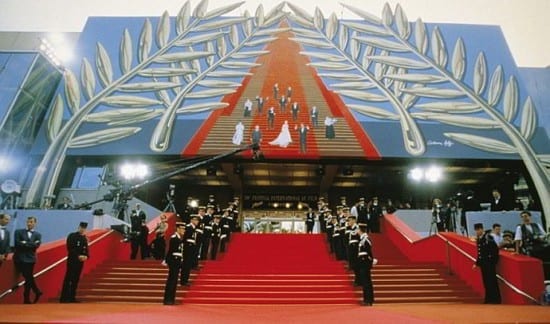

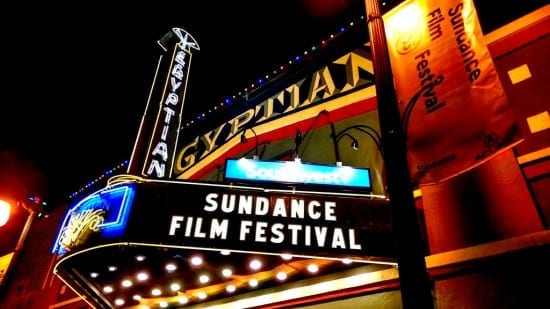
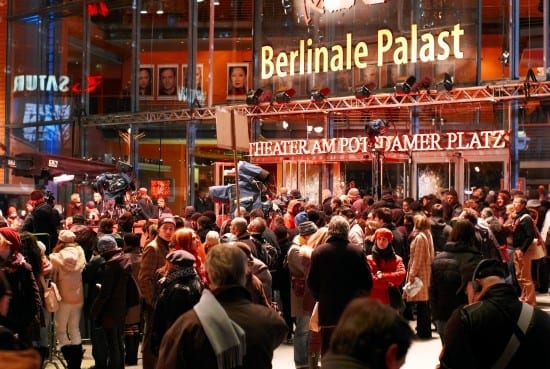

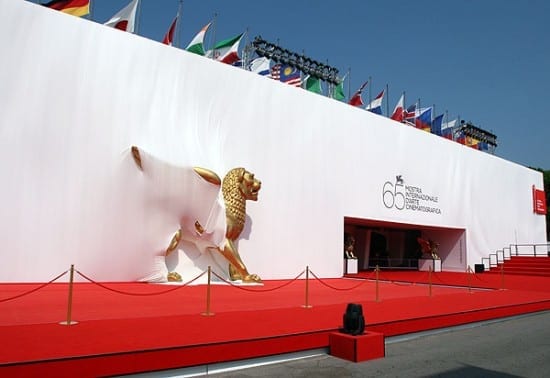
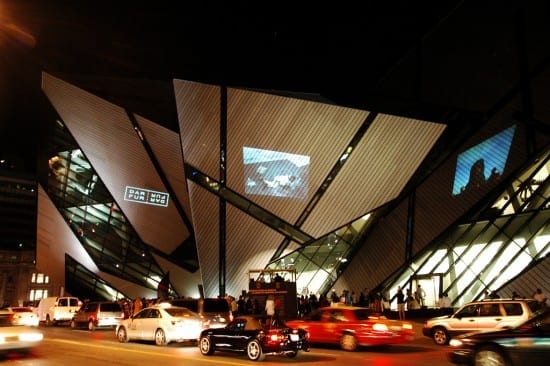
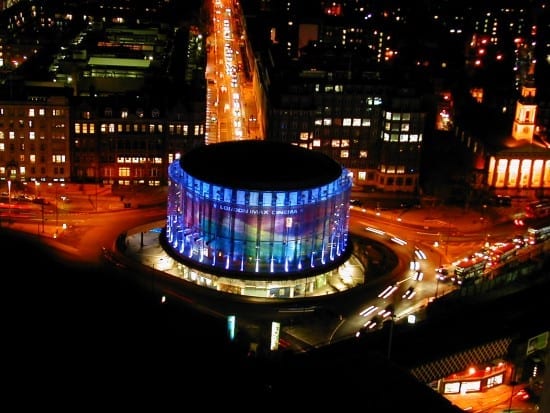
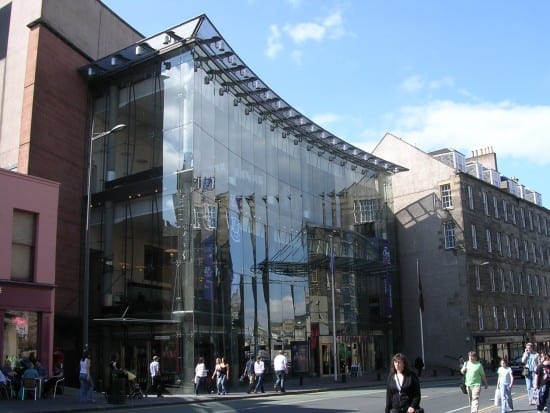
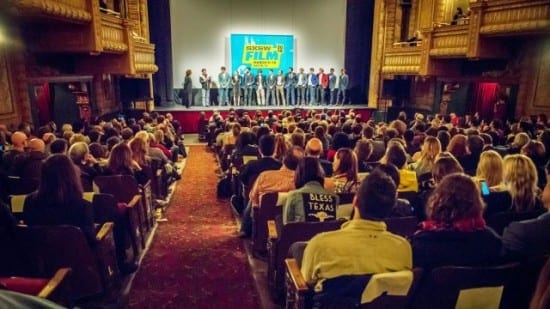
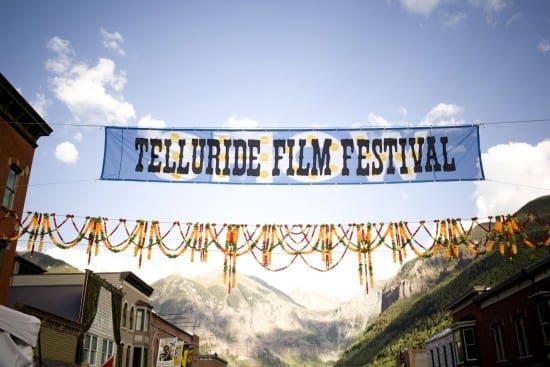
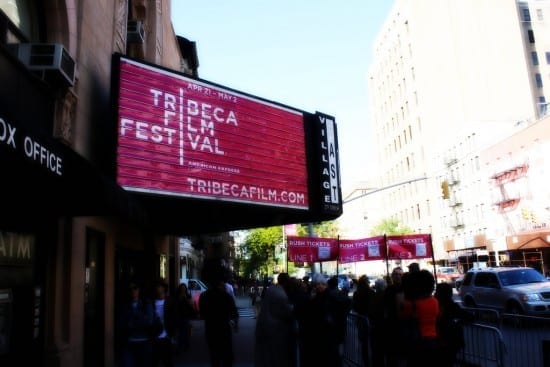
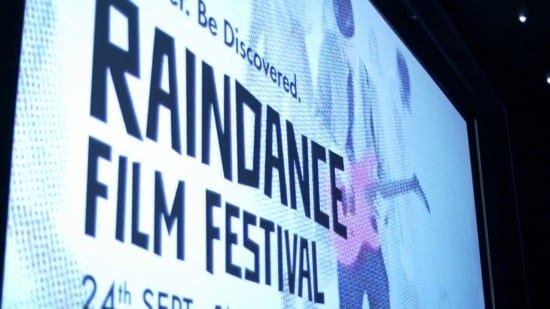
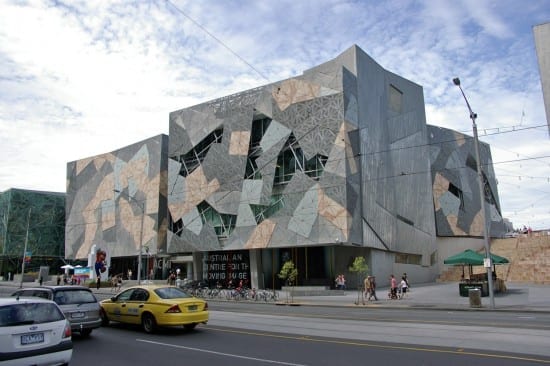
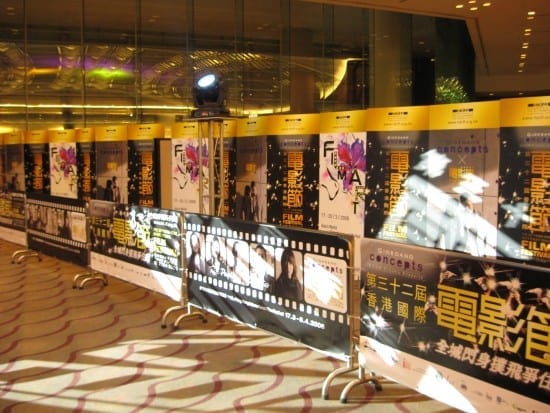
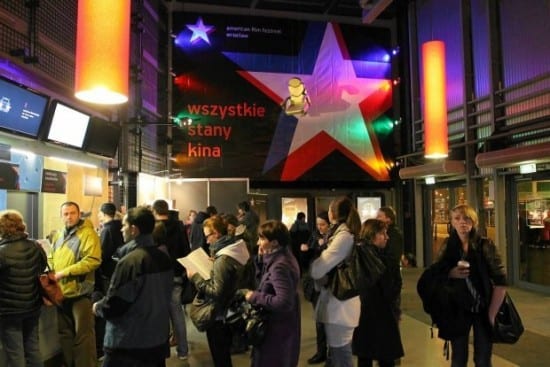
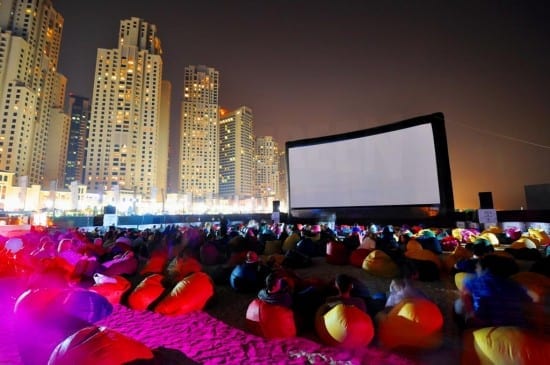
Thanks!
Appreciate it, CanterburyDoney62.
The Garden State Film Festival (GSFF) in Asbury Park (March 22-25, 2018), New Jersey’s Premier Independent Film Festival. 2018 GSFF will present over 200 of the best current independent films from around the globe, showcasing a truly unique mix of culture & genre. 2018 Festival will feature two gala events, after parties, workshops & professional panels, all with celebrity attendees.
Thanks for the info, Lisa.
This was very very informative thank you very much
Thanks, Lanier – much appreciated.
Now, what about a Sarajevo Film Festival ? It’s better than half festivals on this list?!
I haven’t been to that one, Matty. Looks like it’s worth a look, though!
Cheers,
Matt
I like this type of information because you always can learn some interesting new knowledge and at the same time revive the knowledge you already know.
For sure! Thanks for the comment!
Tiff should obviously come 2nd on this list…
The list isn’t an ordered/ranked list, CJ.
Thanks for the comment.
How about Academy Awards? also known as Oscars.
That’s not a film festival, Anuraag.
Can’t believe San Sebastian is not listed…
I mean Sitges Film Festival may be is genre bounded, but San Sebastian is a major.
Huge Anglo-Saxon bias in your selection… Even though Venice and Berlin are listed.
Hi Sarlok,
Thanks for the heads up.
This is a dynamic list that gets added to as time goes on. We’ll take a look for the next update.
Thanks Matt, appreciate it!
I hope you will not be disappointed…
The Latin American film festival in Havana is missing from the list.
Good catch! We’ll update the article at some point and rectify that.
Thanks, Sandra.
Karlovy Vary International Film Festival in Czech Republic is missing
Thanks, Daniela. We’ll update it at some point.
Hi! Nice article, thank u for doing it.
I comment because I went to the Palm Springs International Festival and it was really Good!
Affordable, great movies, and the directors and actors where there: like Colin Farrell, Paul Dano, Cate Blanchett, Brendan Fraser, Austin Butler, Michelle Yeoh, Lars Hallström, and many others!!! Also some movies from other countries that were really great!!
Thanks, Jake. Glad you enjoyed it!
Good work, very informative.
I’m an independent filmmaker in Africa and with our amazing growth, it would be nice to see some African film festivals updated on this list in future
Well done
Thanks, Funmilayo. We’ll take a look as things develop.
I completely agree with the inclusion of the Sundance Film Festival on this list! It’s always a highlight of the year for me, with so many incredible films and emerging talent. Can’t wait to see what’s in store for 2024!
Thanks, Mike.